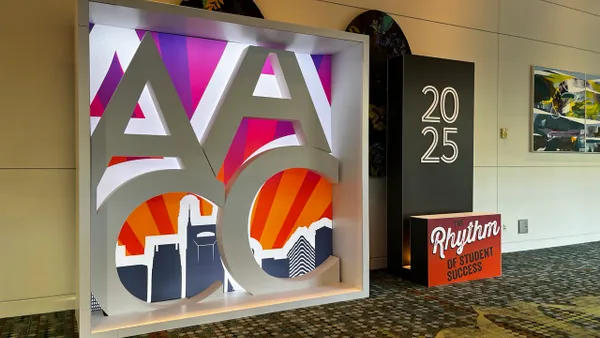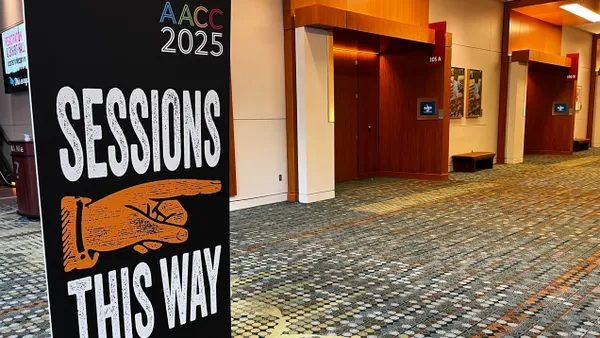Dive Brief:
- The Common Application said Wednesday it will expand to 10 colleges a pilot program that offers students admission before they even apply, a move coming after early results from the initiative proved promising.
- Representatives from the Common App — an online portal enabling students to apply en masse to the more than 1,000 colleges that participate — said their research showed students were more likely to apply to an institution if they received automatic admission. They compared students who applied to colleges after being accepted proactively to those who applied through the traditional process, finding the former group was more likely to seek admission.
- The Common App also examined whether granting students automatic admission would translate to them applying to fewer colleges, which it said does not appear to be the case.
Dive Insight:
This model of automatic admissions has emerged both at individual institutions and among policymakers and higher education companies in the last several years.
One of the most prominent examples is Concourse, which brands its service as universities applying for students. Applicants construct a profile on the platform, which colleges can then view and signal their interest. It primarily focuses on admission of low-income students.
The Common App first tried out direct admissions in March 2021. It worked with three historically Black institutions — University of Maryland Eastern Shore, Fisk University, in Tennessee, and Norfolk State University, in Virginia.
About 3,300 students who created Common App profiles and provided their academic histories were given automatic admission to one of those institutions in applicants’ respective home states.
Only 66 of those students, or 2%, of the direct admissions applicants responded to the offer. Common App CEO Jenny Rickard in a call with reporters Wednesday attributed this to the pilot starting so late in the admissions cycle. Of the 66 students, eight ultimately enrolled at one of the HBCUs.
The Common App then broadened the program in January 2022, extending direct admissions offers to about 17,700 students to one of six institutions. In addition to the HBCUs that participated in the first pilot, Montclair State University, in New Jersey, George Mason University, in Virginia, and Middle Tennessee State University joined the initiative.
In the second pilot, 830 students applied to one of the colleges, or less than 5% of the 17,700. The Common App said students with direct admissions offers were nearly three times as likely to apply to one of the institutions than those they studied in a control group — about 5% of direct admit students applied to one of the partner colleges versus roughly 2% who were not automatically admitted.
The organization also wanted to know if students being accepted proactively would curtail them from applying elsewhere. But proactively admitted students actually sent more applications out, said Preston Magouirk, the Common App’s senior manager of research and analytics.
If those students had applied to the same number of institutions, or fewer colleges, then the Common App would know the program likely stopped them from sending applications elsewhere.
Jordanna Maziarz, director of undergraduate admissions at Montclair State, said less than 3,000 students were given automatic admissions to the university. Of those, about 8%, or 249 applied, and 235 students completed the application. Ultimately 31 students enrolled.
Maziarz said the process was streamlined for students, and the enrolled students had a slightly higher average high school GPA compared to the incoming first-year class. The group of students was also composed of high numbers of racial minority students, she said.
The Common App’s eye toward equity in the project is why colleges might choose to participate in it over starting their own direct admissions programs or using a company’s, Rickard said.
None of the institutions that have participated are selective. Rickard said some colleges with admit rates below 50% had expressed interest in the next iteration of the pilot, but the Common App hasn’t finalized a list of the 10 institutions that will participate.















